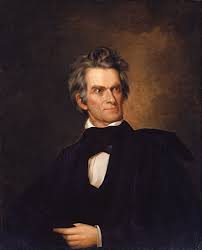John C. Calhoun [1782-1850] American    
Rank: 101
Statesman, Former Vice President of the United States
John Caldwell Calhoun was an American statesman and political theorist from South Carolina, and the seventh Vice President of the United States. Government, Independence, Sad, Freedom, Great, Patriotism, Power, Trust, Wisdom |  |